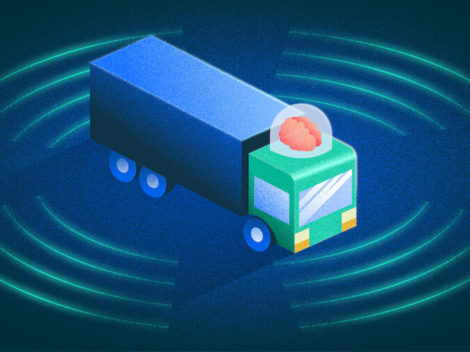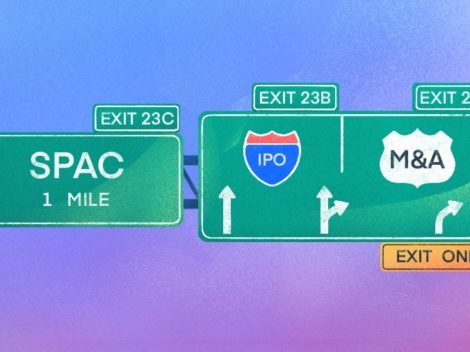AI knowledge has quickly become table stakes. Literally.
If you can’t sit at someone’s dinner table and have a thoughtful, high-level conversation about AI, you’re going to get left behind. This applies to not only business leaders, but any employee whose organization leverages this technology.
AI seems to be all anyone can talk about, and each new development rapidly changes the way we work. So far, these effects have been both positive and negative, depending on who you ask.

For some people, their fears surrounding AI have become a reality: A recent report found that AI replaced nearly 4,000 jobs earlier this year. We can expect to see more jobs become obsolete as the technology continues to develop. On the other side of the coin, the proliferation of AI will also create new jobs — a staggering 97 million of them according to The World Economic Forum.
How else will AI impact the world? It’s hard to say. Ex-Google CEO Eric Schmidt has made his trepidation known, stating: “My concern with AI is actually existential, and existential risk is defined as many, many, many people harmed or killed.”
Numerous other experts have expressed similar sentiments. These worries aren’t unfounded — time and time again humans have proven that we’re our own worst enemy.
Doomsday scenarios aside, AI has and will continue to have many positive impacts in people’s lives both professionally and personally.
AI is empowering individuals to be more productive and do better work, resulting in improved business outcomes. Most of us are familiar with the adage of the tractor and the farmer: The advent of the tractor didn’t replace the farmer, just like the calculator didn’t replace the mathematician.
With that in mind, AI won’t replace humans either. It will just help us complete basic tasks faster, cheaper and more easily than ever — which is what we’ve been using other technologies for since time immemorial.
Sure, some jobs will be absorbed and big changes are in the forecast. But I’m hopeful that the net result of AI will be overwhelmingly positive.
For that to happen, though, humans need to learn how to work with the technology more effectively — and fast. AI may not be coming for your job, but there are a few things people must take into account as it increasingly impacts how we work.
Creativity and other human nuances will be at a premium
At a recent industry event, one of our investors chatted with aforementioned technologist Eric Schmidt. He shared that a friend of his who writes obituaries was wondering whether AI would eliminate his job.
While generative AI is great for writing basic copy or serving as a jumping-off point for more complex texts, it struggles with context and can’t write with the nuance that makes human prose so unique and engaging. It can’t provide personal anecdotes, new ideas, or know how to do things like tactfully infuse humor into a eulogy, for instance.
Writing something as personal and meaningful as an obituary requires that distinct human touch — luckily, Eric’s friend’s job is safe for now.
Generative AI has, however, taken over basic writing tasks, making human attributes like wit, humor and creativity more inimitable than ever.
If you’re not able to write something better than a tool like ChatGPT, well, you may be in trouble. Generative AI will push us all to become more creative and hone in on those valuable assets and skills that only humans can bring to the table.
We’ll all need to become prompt engineers
The arrival of generative AI has launched us into a sort of second Socratic age. Greek philosopher Socrates notoriously emphasized the importance of asking questions, famously stating that, “the highest form of human excellence is to question oneself and others.”
Well, the time has come for us to start asking AI questions, and to ask them in droves.
But to glean the most value from generative AI, we need to be asking it the right questions.
Most of us have learned our whole lives by having concepts drilled into our heads (ah, the ills of the Prussian education system) rather than asking questions. Providing AI with the right prompts won’t come naturally to everyone at first. Like anything else, it’s a learned skill.
The good news is, we’ve already been refining a similar skill for years: Googling. Everyone knows the utility of Google hinges on including the right keywords in your search.
Now, humans must take this step further by crafting succinct prompts designed to generate the type of answers they’re looking for. Without solid prompts, tools like ChatGPT can go off on tangents spewing irrelevant information, or worse, hallucinate.
As with any developing tech, no one knows how the proliferation of AI will play out in the long run. But we do know that it has created exciting new opportunities, amplified the need for genuine talent, and underscored the importance of the authentic, human voice.
Everyone who works for companies leveraging this technology — from business leaders to entry level employees — needs to work on harnessing their creativity and getting good at asking AI the right questions. Their jobs may depend on it.
P.S. You can bet that this article wasn’t written by AI.
Gaurav Dhillon is the chairman and CEO of SnapLogic, overseeing the company’s strategy, operations, financing and partnerships. He is an experienced builder of technology companies, previously serving as the co-founder and CEO of Informatica, which he guided through a successful IPO and global expansion to become a market leader.
Related Reading:
Illustration: Dom Guzman
Search less. Close more.
Grow your revenue with all-in-one prospecting solutions powered by the leader in private-company data.

Stay up to date with recent funding rounds, acquisitions, and more with the Crunchbase Daily.






![Illustration of a guy watering plants with a blocked hose - Global [Dom Guzman]](https://news.crunchbase.com/wp-content/uploads/quarterly-global-3-300x168.jpg)
67.1K Followers